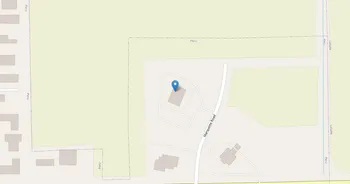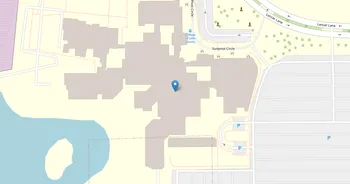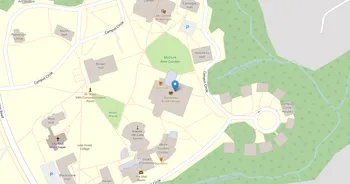Knox College (Knox) : Overview, Courses, Scholarships & Rankings
About Knox College
Fun fact: a Lincoln-Douglas debate unfolded at Old Main, and students still feel that history crossing the quad. Knox is known for small, discussion-driven classes that blend humanities, sciences, social sciences, and the arts. The campus offers bright labs, studios, performance spaces, and a library that feels lived in. Support runs deep, with advising, tutoring, wellness, and a career center that works closely with students.
Student life leans active and unpretentious. Expect music, theater, student media, cultural groups, service projects, and intramurals, with prairie sunsets for good measure. The vibe is collaborative and curious, with a streak of social engagement. Career prep comes through research, community partnerships, internships, and alumni mentors. Galesburg adds a walkable downtown, local arts, and hands-on volunteering.
Key Institutional Details
Contact & Profile
Academic & Institutional
Academic Programs & Fields of Study
Knox College (Knox) offers 41 degree programs across 19 major academic fields, graduating approximately 302 students annually. The most popular fields by graduate volume are Social Sciences (4 programs, 33 graduates), Education (4 programs, 31 graduates), Business (1 programs, 31 graduates), Computer & IT (1 programs, 28 graduates) and English (2 programs, 27 graduates). Explore program details, award levels, and graduate demographics below.
Social Sciences (4 programs, 33 graduates)
Sociology, Anthropology and Political Science Studies
| Program Name | Graduates | Gender Distribution | Award Levels | CIP Code |
|---|---|---|---|---|
| Political Science and Government | 13 |
|
Bachelor's
|
45.1001 |
| Sociology and Anthropology | 13 |
|
Bachelor's
|
45.1301 |
| Econometrics and Quantitative Economics | 6 |
|
Bachelor's
|
45.0603 |
| International Relations | 1 |
|
Bachelor's
|
45.0901 |
Education (4 programs, 31 graduates)
Educational Sciences, Teaching Methods and Pedagogy
| Program Name | Graduates | Gender Distribution | Award Levels | CIP Code |
|---|---|---|---|---|
| Secondary Education and Teaching | 12 |
|
Bachelor's
|
13.1205 |
| Elementary Education | 11 |
|
Bachelor's
|
13.1202 |
| General Education | 5 |
|
Bachelor's
|
13.0101 |
| Teacher Education and Professional Development in Specific Subject Areas | 3 |
|
Bachelor's
|
13.1399 |
Business (1 programs, 31 graduates)
Business Administration, Marketing and Entrepreneurship
| Program Name | Graduates | Gender Distribution | Award Levels | CIP Code |
|---|---|---|---|---|
| Business Administration and Management | 31 |
|
Bachelor's
|
52.0201 |
Computer & IT (1 programs, 28 graduates)
Computer Science, Information Technology and Cybersecurity
| Program Name | Graduates | Gender Distribution | Award Levels | CIP Code |
|---|---|---|---|---|
| Computer Science | 28 |
|
Bachelor's
|
11.0701 |
English (2 programs, 27 graduates)
English Literature, Creative Writing and Literary Analysis
| Program Name | Graduates | Gender Distribution | Award Levels | CIP Code |
|---|---|---|---|---|
| Creative Writing | 20 |
|
Bachelor's
|
23.1302 |
| English Language and Literature | 7 |
|
Bachelor's
|
23.0101 |
Biological Sciences (3 programs, 27 graduates)
Life Sciences, Biotechnology and Biomedical Research
| Program Name | Graduates | Gender Distribution | Award Levels | CIP Code |
|---|---|---|---|---|
| Biology and Biological Sciences | 15 |
|
Bachelor's
|
26.0101 |
| Biochemistry | 9 |
|
Bachelor's
|
26.0202 |
| Neuroscience | 3 |
|
Bachelor's
|
26.1501 |
Arts (4 programs, 22 graduates)
Fine Arts, Design Studies and Creative Performance
| Program Name | Graduates | Gender Distribution | Award Levels | CIP Code |
|---|---|---|---|---|
| Music | 10 |
|
Bachelor's
|
50.0901 |
| Studio Arts, General | 7 |
|
Bachelor's
|
50.0702 |
| Theatre Arts | 4 |
|
Bachelor's
|
50.0501 |
| Art History and Conservation | 1 |
|
Bachelor's
|
50.0703 |
Psychology (1 programs, 20 graduates)
Psychological Sciences, Mental Health and Behavioral Studies
| Program Name | Graduates | Gender Distribution | Award Levels | CIP Code |
|---|---|---|---|---|
| Experimental Psychology | 20 |
|
Bachelor's
|
42.2799 |
History (1 programs, 14 graduates)
Historical Studies, Cultural Heritage and Archaeological Research
| Program Name | Graduates | Gender Distribution | Award Levels | CIP Code |
|---|---|---|---|---|
| History | 14 |
|
Bachelor's
|
54.0101 |
Physical Sciences (2 programs, 13 graduates)
Chemistry, Physics and Earth Sciences Research
Admission Requirements & Test Scores
Comprehensive overview of admission criteria, standardized test score ranges, and application requirements for prospective students at Knox College (Knox).
Application Requirements
Data based on IPEDS for 2022-2023 academic year. Test score ranges represent the middle 50% of admitted students (25th-75th percentile). Requirements may vary by program.
Tuition, Fees & Estimated Costs
Overview of tuition rates, housing, and other annual education expenses for undergraduate and graduate students
Financial Aid & Student Support
Summary of scholarships, grants, student loans, and financial aid statistics for undergraduate students
Student Success Metrics
Graduation rates and post-graduation earnings to help assess student outcomes and long-term value of education.
Loan Burden & Repayment Outcomes
Breakdown of loan repayment rates and student debt levels by income and dependency status.
Frequently Asked Questions
Find answers to the most common questions about Knox College (Knox)
How much does it cost to attend Knox College (Knox)?
The annual tuition at Knox College (Knox) is $55,587 for in-state students. When including room and board, books, and other expenses, the total estimated cost is approximately $68,626 for in-state students. Additional costs include room and board $10,407 (on) / $8,895 (off) and books and supplies $1,200.
Data based on IPEDS program completions for 2022-2023 academic year. Tuition and cost estimates are approximate and may not include all fees, personal expenses, or transportation costs.
What academic programs and degree levels does Knox College offer?
Knox College (Knox) offers 41 academic programs across 19 major fields of study, with available degree levels: Bachelor's.
Most popular program areas include:
- Sociology, Anthropology and Political Science Studies (4 programs)
- Educational Sciences, Teaching Methods and Pedagogy (4 programs)
- Business Administration, Marketing and Entrepreneurship (1 programs)
- Computer Science, Information Technology and Cybersecurity (1 programs)
- English Literature, Creative Writing and Literary Analysis (2 programs)
Data based on IPEDS program completions for 2023-2024 academic year. Numbers reflect programs where students graduated, not all offered programs.
What is the acceptance rate for Knox College?
Knox College (Knox) has an 71.1% acceptance rate and a 8.5% yield rate, making it selective.
Admission statistics breakdown:
- Total applicants: 4,136
- Students admitted: 2,942
- Students enrolled: 249
Data based on IPEDS for 2022-2023 academic year. Admission statistics may vary by program and application cycle.
What financial aid and scholarships are available at Knox College?
Knox College (Knox) provides financial aid to 23% of first-time, full-time students, with average grants of $40,548 and average loans of $5,773.
Average financial aid amounts by type:
- Pell grants: $5,463
- State/Local grants: $6,708
- Institutional grants: $37,593
- Federal loans: $5,266
The university supports 247 students with grants and 188 students with loans annually.
Data based on IPEDS for 2022-2023 academic year. Financial aid amounts and percentages may vary by program, enrollment status, and individual circumstances.
What is the average salary for Knox College graduates?
Knox College (Knox) graduates earn a median salary of $37,757 after 6 years and $54,820 after 10 years.
The salary range 10 years after graduation spans from $35,617 (25th percentile) to $80,037 (75th percentile), with top earners reaching $87,000 (90th percentile).
Data based on IPEDS for 2022-2023 academic year. Salary data reflects graduates who received federal financial aid (approximately 60% of all graduates). Actual earnings may vary significantly based on program, location, and individual circumstances.
Related Universities




Found something useful? Help others discover it too! Share with friends, on social media, or save for later - every share helps someone find the information they need.